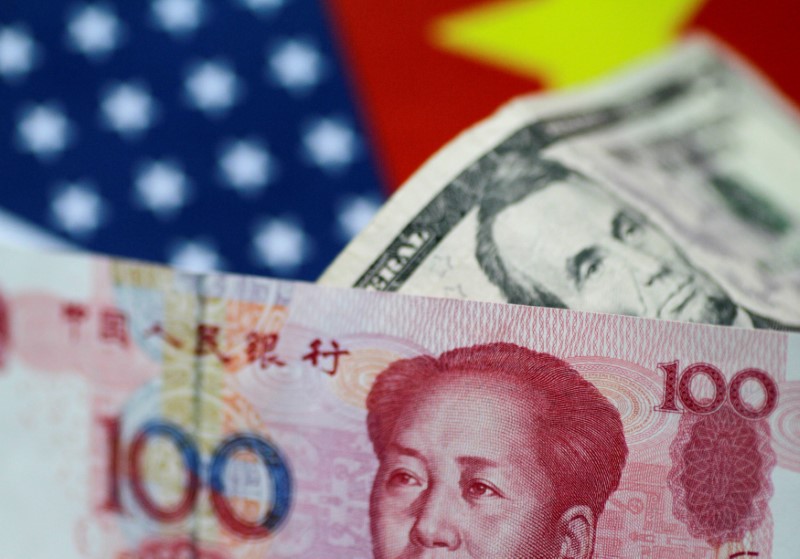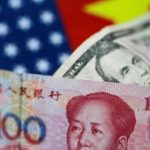
Weak risk appetite saw traders remain averse to most regional currencies this week, while the Japanese yen saw extended buying as it benefited from safe haven demand, while an unwinding carry trade also benefited the currency. The yen was by far the best performer among its Asian peers this week.
Commodity-linked currencies, particularly those with exposure to China, saw some relief on Friday, with the Australian and New Zealand dollars strengthening slightly. But the two were nursing steep losses this week.
The dollar index and dollar index futures both steadied on Friday after seeing some resilience on stronger-than-expected gross domestic product data for the second quarter.
The reading pushed up hopes that the U.S. economy was headed for a soft landing, where growth will remain steady while inflation eases.
Focus is now squarely on PCE price index data- which is the Federal Reserve’s preferred inflation gauge. The reading is due later on Friday and is expected to show inflation eased further in June.
PCE data also comes just days before a Fed meeting, where the central bank is widely expected to keep rates unchanged. But any signals on interest rate cuts will be closely watched, with markets keeping intact expectations for a September cut.
The Chinese yuan weakened on Friday, pulling back after suspected intervention by the Chinese government saw the currency appreciate sharply against the dollar on Thursday.
The USDCNY pair had fallen sharply from near eight-month highs on Thursday, with its outsized drop sparking speculation over government intervention. The currency was grappling with increased selling pressure after a series of surprise interest rate cuts by the PBOC this week.
Doubts over a slowing economic recovery also weighed on the yuan.
The Japanese yen was among the best performers this week, extending a strong run after suspected intervention by Tokyo earlier in July boosted the currency.
The USDJPY pair was down 2.4% this week- its biggest weekly drop since late-April.
However, the yen’s advance was somewhat stalled by soft inflation from Tokyo, which showed inflation remained largely muted in July.
The soft inflation reading came just days before a Bank of Japan meeting, with analysts split over whether the central bank will have enough headroom to hike interest rates by 10 basis points.
Broader Asian currencies were mostly nursing steep losses against the dollar this week, as risk appetite soured. The Australian dollar’s AUDUSD pair and the New Zealand dollar’s NZDUSD pair were both down nearly 2% this week.
The Indian rupee’s USDINR pair steadied after apparent Reserve Bank intervention pulled the pair away from record highs hit on Thursday.
The South Korean won’s USDKRW pair rose 0.3%, while the Singapore dollar’s USDSGD pair was flat after the Monetary Authority of Singapore kept monetary policy unchanged.
To read the full article, Click Here

